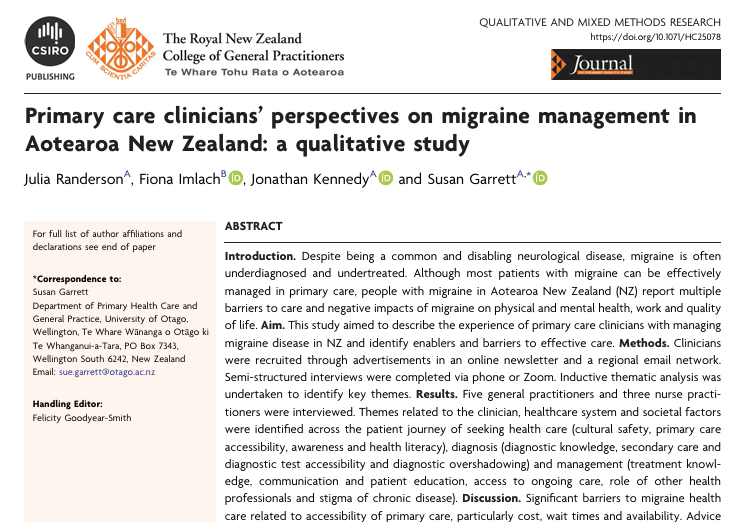During the summer of 2024/25, Migraine Foundation researchers and 4th year medical student Julia Randerson interviewed eight primary care clinicians (five GPs and three nurse practitioners) to find out about their experiences of managing people with migraine, including barriers to and support for effective care. She reflects on what she found here.
In summary, key barriers to care were the often-discussed system barriers: cost of appointments, waiting times to get appointments, limited access to specialist care. These barriers impeded people seeking help for migraine symptoms, receiving a diagnosis of migraine disease and getting treatment. People need access to all three of these stages of health care for migraine to be managed well and equitably.
Other factors that influenced migraine care related to the clinician, and included diagnostic and treatment knowledge, communication skills and cultural safety. Societal factors included awareness and health literacy, the stigma of a chronic, invisible disease, and the problem of invisible diseases (especially those affecting more women than men) being ‘overshadowed’ by presumptions of psychological distress.
The health system issues are not going to be easy or quick to fix but involving and upskilling a wider range of health professionals to support people with migraine could help. Increasing awareness, knowledge and understanding about migraine disease amongst all health professionals and the wider public is important, and a fundamental pillar of the work of Migraine Foundation Aotearoa NZ.
This research was published in the Journal of Primary Health Care in July 2025. The research was the result of a summer student project, funded by the Research and Education Committee of the Royal New Zealand College of General Practitioners. Many thanks to the College, our summer student Julia and the clinicians who gave their time to be interviewed.
For more information, read our article and press release:
Press release: System stymies effective migraine treatment – study finds


